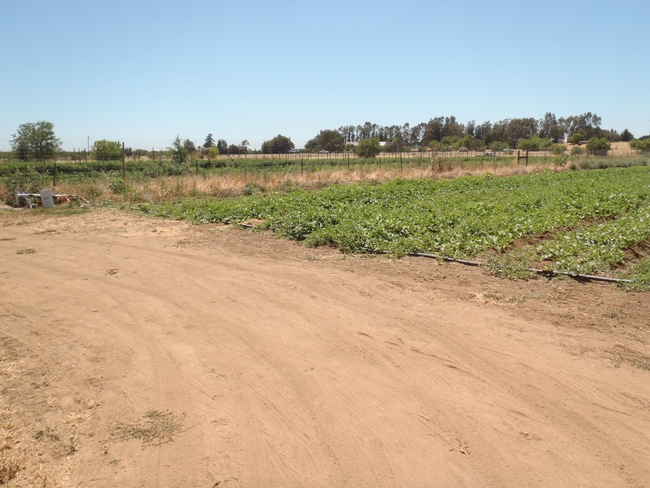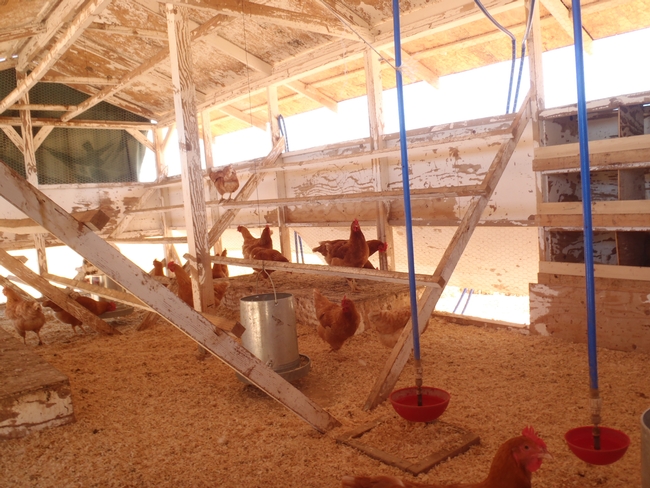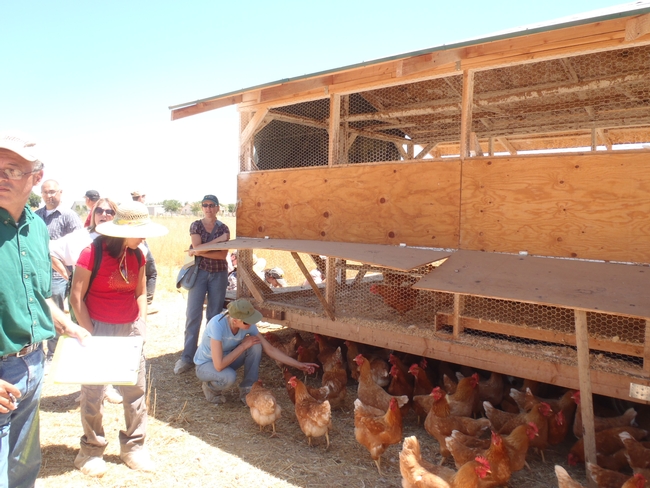As a budding farmer in Solano County, I frequently attend farm tours to learn new methods for growing edible plants/vegetables and raising livestock. Last week, I had the privilege of attending a lecture presented by Chris Hay of Say Hay Farms. Chris is a thoughtful, conscientious, and entrepreneurial young grower who owns and operates an 8-acre certified organic farm in Woodland, California--just a hop, skip and jump from Solano County. Chris grows diversified vegetables as well as raises pastured chickens for eggs.
I love attending farm tours because each time I have attended one, I learn about a new method of growing, a new trick/technique of the trade, or alternatively, what mistakes not to make in setting up a farm or garden. As relevant to people interested in gardening in particular, one new trick that I learned from visiting Chris’ farm, is the use of table top greenhouses to begin his starts (unfortunately, I have pictures of everything else but these greenhouses, so I’ll do my best to describe them to you). It is a simple device. Chris creates a small tent (think small picnic tent to keep flies off of food), using plastic and PVC piping, and places it over a black plastic seedling tray you would commonly see in seed catalogs. Essentially, it is a tabletop hoop house for his seedlings and looks to be very inexpensive to make. Chris keeps these outdoors during the summer. Chris says that it is effective and has saved him lots of money to start seeds in this manner rather than purchasing seedlings.
As most of you know, backyard chickens are all the rage. Another tip that I learned from visiting Chris’ farm that you can apply to your own backyard chicken coop, is painting a farm white wash on the interior walls of your chicken coop/house to reduce or prevent mites (a chicken parasite that is very difficult to get rid of). There are various recipes for farm white wash which you can google, all of which are usually inexpensive, but in general, it consists of some combination of lime, salt, alum, molasses, sodium chloride and water. Chris said that the white wash flakes off annually, so he has to repaint the inside of his chicken coops every year; however, he has never had any issue with mites as a result of using the white wash (and keeping the coop clean and dry and adding food-grade safe diatomaceous earth) and he raises approximately 500 chickens.
So there you have it—tips from the professionals that you can incorporate on a small scale into your own backyard that are both inexpensive and effective.
Attached Images:


